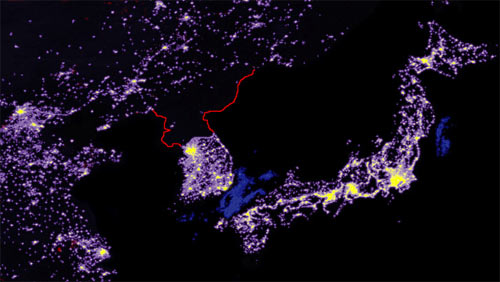North Korea: the missing words
Wednesday, April 17th, 2013[ by Charles Cameron — at times the missing pieces of a puzzle are right there in plain sight — might it be a good idea to notice them? — oh, and Carthage! ]
.
I recently wrote about the failure of many translators of jihadist texts to include the specific Qur’anic citations on which they were based — something I noticed because I’m keenly interested in theologies, but which doesn’t seem to concern those who are trying to understand jihad. A week ago I saw a neat parallel from the world of political propaganda, as noted by Patrician Kushlis at Whirledview:
one of the experts at the conference in describing the unique characteristics of the North Korean propaganda barrage pointed out that the country’s threats always concluded with the phrase: “if the Americans attack.” But the speaker added that these four final words are not reported in the media or government statements we see in the West.
What is it with these people, that they keep on uttering phrases that can safely be ignored at the beginnings and endings of statements?
I mean, would anyone in Carthage have bothered to translate into Punic — the language the Carthaginians spoke — an utterance like the Elder Cato‘s repetitive and obviously phatic Carthago delenda est ?







